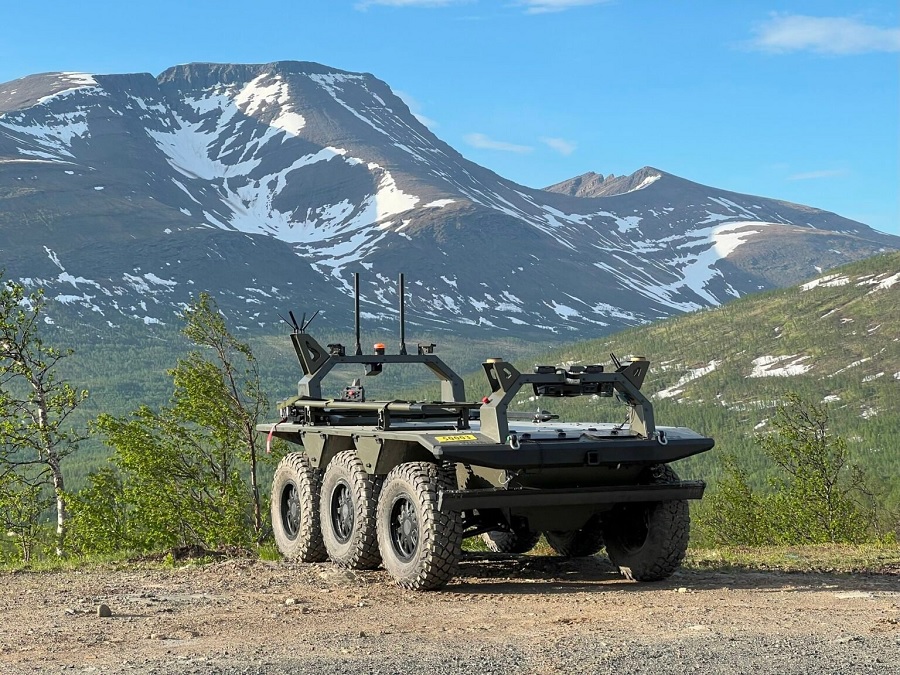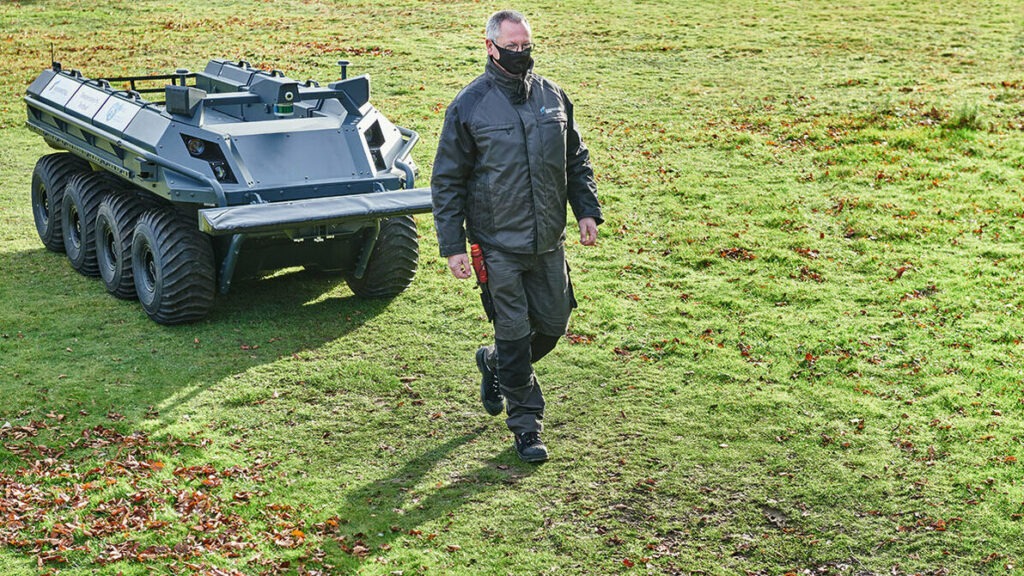Pioneering the Next Era of Agriculture

The Agriculture Pathology Institute stands at the forefront of technological innovation, integrating advanced autonomous systems and artificial intelligence to redefine modern farming practices. As the world grapples with the dual challenges of food security and environmental sustainability, the institute has partnered with Rheinmetall to deploy the Mission Master—a high-mobility, AI-driven vehicle designed specifically for large farms and agricultural operations.
This collaboration marks a significant milestone in the development of AI farming, paving the way for autonomous vehicles to operate continuously around the clock, regardless of daylight or weather conditions. With engineering precision in every project, this initiative aims to streamline farm management, enhance crop yields, and minimize resource wastage. By leveraging the versatility of the API Site Carrier, the Agriculture Pathology Institute is turning science fiction into reality, pioneering a future where using AI to dig irrigation, clean up debris, and build a farm becomes a commonplace strategy for sustainable farming.
The API Site Carrier: An Autonomous Workhorse for Agriculture

At the heart of this revolution is the API Site Carrier—a state-of-the-art, uncrewed ground vehicle (A-UGV) designed for high mobility and adaptability in large-scale farming environments. This platform combines robust engineering with advanced autonomous navigation, making it ideal for a variety of agricultural roles from logistical support to crop monitoring.
The Site Carrier's core autonomy is powered by the PATH A-kit, an integrated system that ensures precise navigation and operation across challenging terrains. Its modular design facilitates easy upgrades and customization, enabling farmers to adapt it for various tasks, such as using AI for irrigation, utilizing AI to clean up debris, or deploying specialized sensors for crop analysis. Consequently, the Site Carrier transforms traditional farming operations into efficient, intelligent processes capable of maintaining high productivity with minimal human intervention.
Revolutionizing Crop Monitoring with AI Precision
One of the most significant innovations enabled by the API Site Carrier is the automated monitoring and analysis of crops. Equipped with multispectral and thermal sensors, these autonomous vehicles can patrol vast fields, capturing high-resolution images that reveal detailed insights into crop health. This real-time data collection allows the Agriculture Pathology Institute to diagnose issues more quickly and accurately than ever before.
Through advanced AI algorithms, these sensors analyze the imagery instantaneously, identifying the earliest signs of disease, pest infestation, or stress. This early detection capability empowers farmers to take prompt action, preventing minor issues from escalating and damaging large portions of their crop. Furthermore, the potential to utilize AI to inform farm management with data-driven insights means these vehicles can help optimize crop placement and management strategies—ultimately contributing to higher yields and healthier crops.
Predictive Insights and Data-Driven Decision Making
Beyond real-time monitoring, the integration of AI with the Site Carrier provides powerful predictive capabilities. By combining sensor data with machine learning models, the system can forecast crop yields, identify potential problem areas, and recommend targeted interventions to optimize crop production. This proactive approach reduces dependency on reactive measures, fostering a 24-hour AI farming environment where decision-making is continuous and data-driven.
The Agriculture Pathology Institute leverages these insights to streamline resource allocation, optimize planting schedules, and refine harvesting practices. Additionally, automated reporting features generate comprehensive maps and health assessments that equip farmers with actionable information at their fingertips. As a result, operations become more precise, efficient, and sustainable, supporting the broader goal of transforming traditional farms into intelligent, autonomous ecosystems.
Precision Resource Management: Saving Costs and the Environment
Resource management is critical in modern agriculture, where the goal is to maximize output while minimizing waste and environmental impact. The API Site Carrier makes significant improvements in this area through targeted fertilization and irrigation. Using AI-guided sensors that continuously assess soil composition, moisture levels, and plant health, the vehicle can precisely deliver nutrients and water exactly where and when they are needed.
This targeted approach reduces the overapplication of fertilizers and water, thereby lowering costs and environmental footprint. Moreover, the vehicle's ability to utilize AI to dig irrigation channels or dynamically adjust watering schedules ensures optimal soil hydration and nutrient uptake. Such precise resource management not only boosts crop yields but also aligns with sustainability goals by conserving water and reducing chemical run-off, creating a more eco-friendly farming environment.
Using AI to Clean Up Debris and Maintain Farm Health
Farmers face logistical challenges, such as debris accumulation, which can impede the movement of machinery and lead to crop damage. The API Site Carrier addresses this problem by incorporating AI-powered debris removal systems. Using computer vision, the vehicle can detect, assess, and promptly clear waste, fallen branches, or other obstructions within the fields.
This capability exemplifies how AI can efficiently clean up debris, reducing manual labor and preventing crop damage. Furthermore, the vehicle's autonomous patrols enhance farm security by sensing environmental changes and potential threats, such as unauthorized access or animal intrusions. As a result, farms can operate smoothly without interruption, maintaining a healthy and productive environment.
Scalability and Flexibility Through Modular Design
The success of AI farming relies heavily on adaptable technology. The API Site Carrier's modular architecture enables effortless customization tailored to the specific needs of each farm. Farmers can swap out mission kits and sensors to enable specialized functions such as planting, harvesting, or detailed crop surveying. This versatility makes the platform suitable for a multitude of agricultural applications.
The system's network-centric design enables coordination across multiple vehicles. An AI-driven fleet of Site Carriers can perform synchronized tasks such as parallel harvesting or multi-point crop scanning, effectively covering thousands of acres with minimal human oversight. Such scalability not only enhances operational efficiency but also supports the long-term adoption of automated farming practices.
Seamless Integration with Farm Management Ecosystems
A key feature driving the widespread deployment of API Site Carrier vehicles is their compatibility with existing farm management systems. The platform is designed for cross-platform integration, facilitating centralized control and streamlined data flow. This ensures that all autonomous units operate cohesively, with data consolidating into user-friendly dashboards accessible to farmers and agronomists.
Through this integration, farms can implement comprehensive management strategies, from crop planning to resource tracking and security. As a result, technological complexity remains manageable, and farmers benefit from decision-support tools powered by real-time insights. This synergy between automation and management systems marks a significant step toward 24-hour AI farming, where operational decisions constantly evolve based on sensor data and predictive analytics.
The Role of the Agriculture Pathology Institute in Promoting Innovation
The Agriculture Pathology Institute's collaboration with API exemplifies how institutions can foster innovation in the agricultural sector. By embracing engineering precision in every project, the institute ensures that autonomous vehicles, such as the Site Carrier, meet rigorous standards for safety, reliability, and performance. Their role extends beyond testing and deployment; they actively contribute to refining AI algorithms and sensor technologies to optimize farming outcomes.
Through ongoing research and development, the institute aims to democratize access to smart farming solutions, making autonomous vehicles viable for farms of all sizes. Moreover, their focus on sustainable practices aligns their technological advancements with global efforts to reduce the ecological footprint of agriculture, ensuring that future food production is both efficient and environmentally responsible.
Looking Ahead: Building the Farms of Tomorrow
As AI technology continues to evolve, the potential for using AI to build a farm that operates autonomously 24/7 becomes more tangible. The Agriculture Pathology Institute envisions a future where large farms are managed by interconnected fleets of API Site Carriers working harmoniously to maintain crop health, optimize resource use, and automate manual labor — all underpinned by cutting-edge AI.
This future involves not only automating routine tasks but also integrating analytics, robotics, and IoT devices into a cohesive, intelligent ecosystem. Farms will no longer be confined to traditional boundaries. Still, they will evolve into complex, sustainable, resilient food production systems driven by AI farming in the dark—where operations continue seamlessly, day and night. As a result, the industry moves closer to achieving engineering precision in every project, ultimately ensuring food security for future generations.
The collaboration between the Agriculture Pathology Institute and API is charting a new course toward 24-hour AI farming. By leveraging autonomous vehicles like the Site Carrier, employing AI for precision crop management, resource conservation, and operational efficiency, farmers can achieve unprecedented levels of productivity and sustainability. As innovations continue to emerge, it is clear that the future of agriculture belongs to those who embrace technology-driven solutions—building farms that are smarter, cleaner, and more resilient than ever before.
